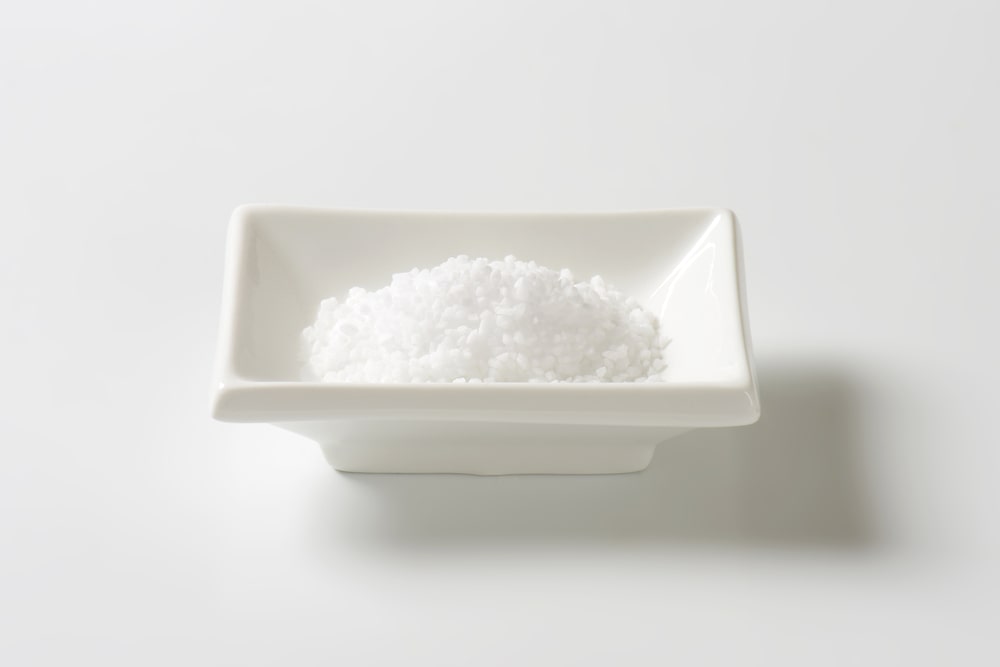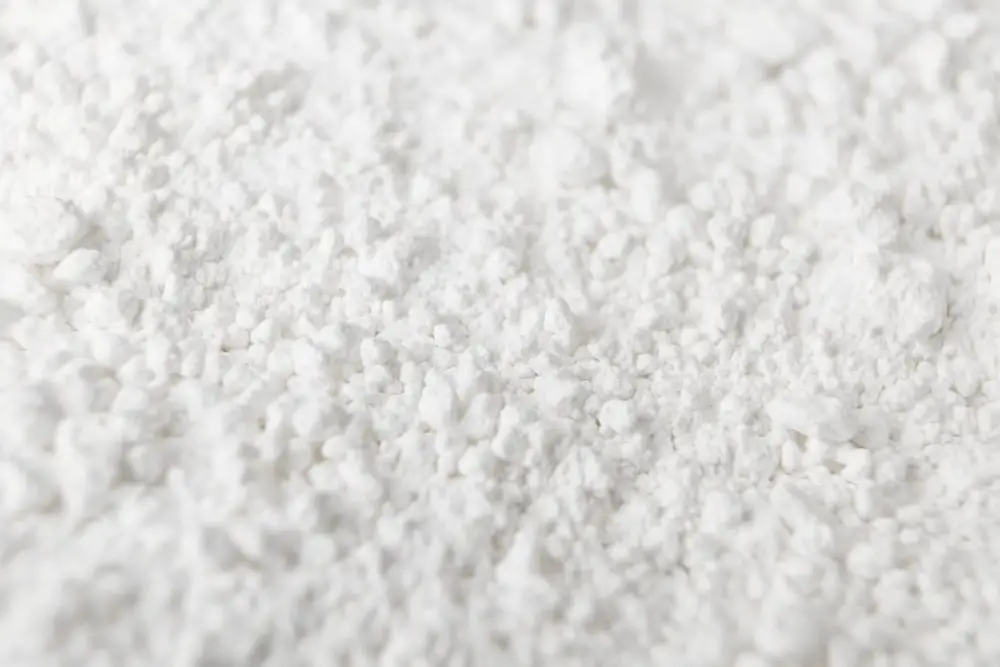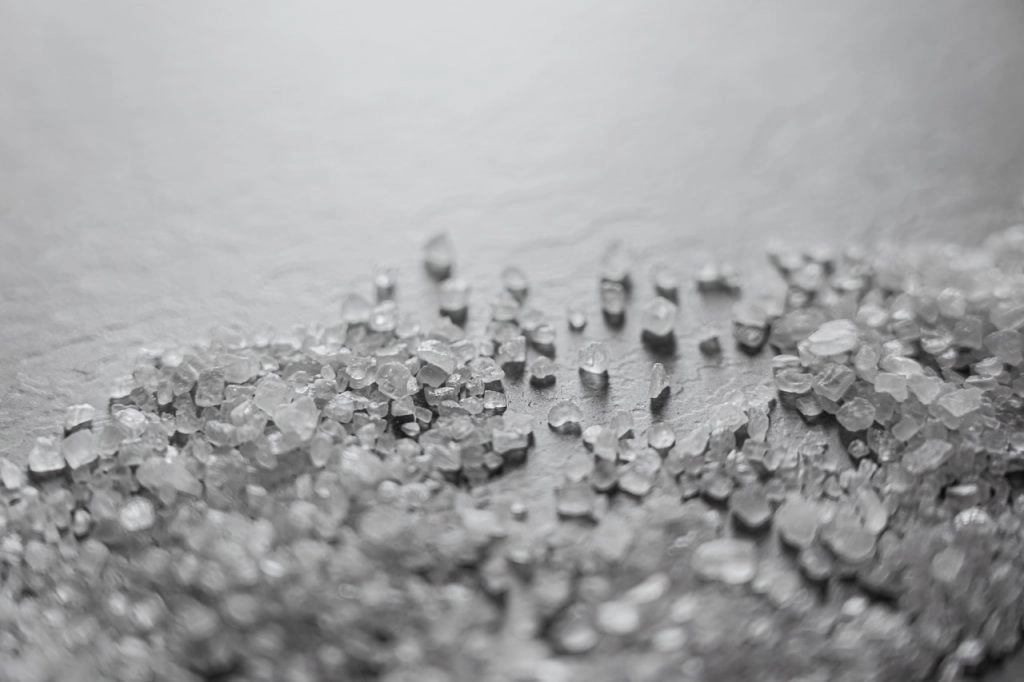Skincare products are used by millions of consumers on a daily basis. While many of these consumers are educated about the ingredients contained in their skincare products, many are completely oblivious.
This post may contain affiliate links. Read the full disclosure here
Benzoic acid is an ingredient commonly used in skincare products, and here is an overview of this ingredient, as well as the answers to some commonly asked questions about Benzoic acid:
What is Benzoic Acid?
Benzoic acid is an organic acid that is naturally found in some foods like cinnamon, prunes, cranberries, cherry tree bark and cloves, as well as in the scent glands of beavers.
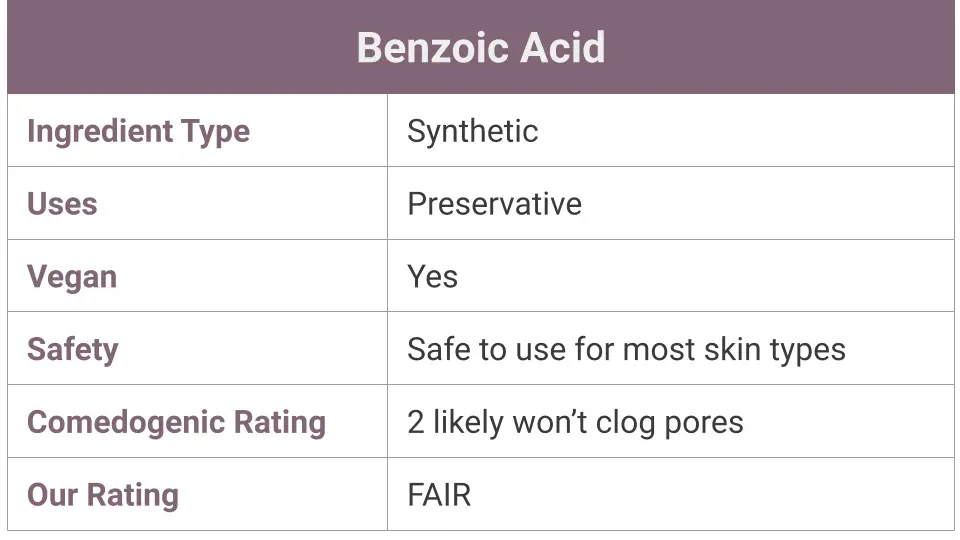
This organic acid is also manmade, as chemists create it in laboratories, by partially oxidizing toluene with oxygen. The compound is then catalyzed by adding either cobalt or manganese.
Benzoic acid is a simple compound to create, so it is often created in abundance and used in multiple consumer products throughout the world. It is used in many food and personal care products as an additive to improve the shelf life of the products. Consumers will often find this ingredient listed under other names, such as Sodium Benzoate.
Benzoic Acid Benefits and Uses
Benzoic acid is used in numerous products and has many benefits. It’s used as a preservative agent in many foods worldwide, as well as personal care products. In addition, Benzoic acid is used as a component in ointments intended to treat bacterial and fungal infections, as this acid inhibits the growth of bacteria, yeasts, mold, and fungus. Benzoic acid is currently being used for making perfume, which requires this acid to be combined with other chemicals and fragrances.
Benzoic acid is also used in industrial settings in its original powdered form. Safety information is provided at most job sites, because if this powder is inhaled it can cause respiratory difficulty wheezing, and more. It can also cause skin irritation and rashes, since this acid is used in higher concentrations in industrial settings than in food and cosmetics. Benzoic acid is also used as a component in insect repellents, as it reduces the growth of mold, improving the self life of the product.
Some additional benefits of using Benzoic acid in cosmetics and personal care products is the fact that it has anti-aging properties, and it also soothes the skin and provides moisturization.
Benzoic Acid Comedogenic Rating
The comedogenic rating of benzoic acid is a 2. Comedogenic refers to a compound’s likelihood of clogging the pores of the skin. For a more in-depth understanding of comedogenic ratings of products, here is an overview of the comedogenic scale:
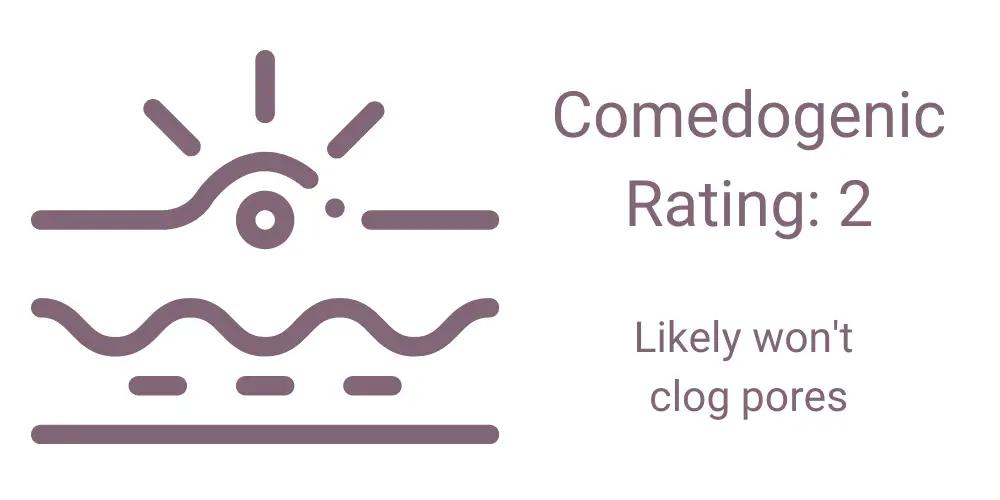
0 – Will not clog pores
1 – Slight chance of experiencing clogged pores
2 – Low chance of experiencing clogged pores
3 – Moderate chance of experiencing clogged pores
4 – Relatively high chances of experiencing clogged pores
5 – High chance of experiencing clogged pores
According to the scale, since Benzoic acid measures a 2, there is a low chance of it causing individuals to experience clogged pores. While most people will not experience clogging of their pores upon using cosmetics or personal care products containing this acid, some of the more sensitive individuals, or those with oily skin, may experience clogged pores.
Is Benzoic Acid Safe for Your Skin?
When used as a preservative in ointments used to treat jock itch, ringworm and similar fungal infections, Benzoic acid, along with salicylic acid, works by impeding the growth of the disease-causing fungus. This is generally safe and doesn’t result in skin irritation except in extreme cases.
The Cosmetic Ingredient Review Expert Panel considers this ingredient safe to use in cosmetics when best practices and concentration limits are met.
Benzoic acid is considered to be safe in low amounts, and most products that contain this acid only contain small amounts. In dosages higher than 5%, Benzoic acid can lead to skin irritation as well as the development of skin rashes, and more. That is why Benzoic acid that is used in industrial settings shouldn’t come into contact with the skin or eyes, because the concentration is often greater than 5%, which isn’t safe to come into contact with the skin or eyes.
The use of Benzoic acid in any product is restricted in New Zealand, Australia, China and Taiwan, as they have made claims that this acid, which is widely used in the U.S. and other countries, can cause harm. This acid has been implicated in some cases of liver disease, cancer, asthma, and more in these countries.
Alternatives to Benzoic Acid
Not everyone is able to tolerate Benzoic acid in their skincare products, and some simply don’t desire to have this ingredient in their foods or personal care products. For these individuals, there are fortunately some alternatives to this popular acid. In fact, many all-natural and organic food and personal care product manufacturers use natural alternatives to Benzoic acid that are considered safer. Some of these alternatives include:
- Rosemary – Fresh or dried rosemary leaves can be used to preserve food, beauty products, and more
- Cloves – The dried flower buds can effectively preserve many products
- Cinnamon – The dried inner bark or the shoot or trunk is used as a natural preservative
- Neem – Not only is this ingredient used as a preservative, but it has antifungal and anti-parasitic properties, as well
There are other alternatives to Benzoic acid, as well. Naticide is an all-natural preservative that is often used in perfumes and similar products. It has a sweet, almond-like scent, and it repels the growth of yeasts and molds. Preservative Eco is another all-natural preservative that is used in a variety of all-natural and organic beauty products. Preservative Eco is created by combining 4 different all-natural compounds: Benzyl Alcohol, Salicylic Acid, Glycerin and Sorbic Acid, all of which are derived from natural sources.
What Products Contain Benzoic Acid?
Benzoic acid is present in many beauty products, such as perfume, lip balm, lipstick, exfoliants and facial masks, mascara, eyeshadow, makeup remover, and more. Benzoic acid is added to beauty product formulations due to this chemical’s ability to preserve the product as well as normalize the PH and keep it stable.
Even though this acid occurs naturally in some foods, chemically-created benzoic acid is often added to many processed foods in order to preserve it, since Benzoic acid inhibits the growth of mold, bacteria and yeasts. Some foods that contain Benzoic acid are: pickles, barbecue sauce, fruit juice, soft drinks, and salad dressings.
The taste of Benzoic acid in foods is sometimes detectable, depending on the specific food. It has been referred to as “burning” or “peppery,” which most people consider to be unpleasant.
Benzoic acid is often added to foods and personal care products under the name Sodium Benzoate, as Sodium Benzoate is then converted to Benzoic Acid, the active form of this chemical. Benzoic acid relies heavily on the PH of a product, and the higher the PH is, the less active this acid is. When at a PH of around 3, Benzoic acid is extremely active, but when the PH of a product is around 6, this acid is inactive.
Benzoic Acid Dangers or Risks
Benzoic acid is generally considered safe, although there isn’t adequate data to determine whether this acid can cause cancer or other serious illness. Extremely large amounts of Benzoic acid can lead to death, but most products contain such a minute amount of this acid that it isn’t considered dangerous. Benzoic acid has been implicated in some cases of skin irritation, especially in sensitive individuals. However, it is more likely to cause eye irritation, which has been noted in numerous cases.
According to the Center for Disease Control (CDC), when inhaled in extremely large amounts, Benzoic acid can lead to coughing, nausea, abdominal pain, vomiting and more. However, most products containing Benzoic acid aren’t inhaled, so most consumers don’t have to worry about these symptoms. If accidentally inhaled, Benzoic acid can cause difficulty breathing, wheezing, as well as irritation to the nose, lungs, and throat.
Is Benzoic Acid Good?
It is a matter of opinion whether or not Benzoic acid is a good ingredient in skincare. Many consumers safely use various products containing this popular acid with no adverse reactions.
However, other consumers have experienced undesirable effects from using it or are afraid of possible side-effects from its use, so they would not consider this acid to be a safe ingredient in any product. It’s a widely used ingredient with limited known risks. But it’s worth looking for alternatives if you have sensitive skin or our concerned about the potential concerns noted above.
Related Ingredients You May Find Interesting:

